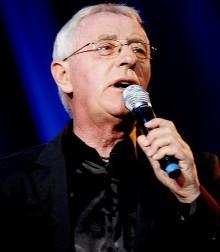Thông tin về ca sĩ Oliver Dragojević
Oliver Dragojević (born 7 December 1947) is one of Croatia’s most popular and enduring musical stars and a beloved cultural icon with a discography that spans nearly four decades. His style blends traditional Klapa melodies of Dalmatia, a coastal region in his native Croatia, with jazz motifs wrapped up in a modern production. He is one of the few Croatian musicians who can boast with sold out performances at New York’s Carnegie Hall, London’s Royal Albert Hall, Olympia (Paris) and the beautiful Sydney Opera House.
Biography
Dragojević had three sisters, who died young as refugees during the Second World War. The family had escaped war to a refugee camp in El Shatt Egypt as had many women and children from Dalmatia.[2] Dragojević himself was born on 7 December 1947, not long after his family returned to their ancestral village of Vela Luka on the Dalmatian island of Korcula. His brother Alyosha was born not long after in 1949. At the age of five, his father Marko, bought Dragojević a harmonica. As he got better he started to entertain the kids from his street, and passengers on board the frequent ship route Vela Luka – Split. With the young Dragojević’s passion for music, his parents sent him to a music school in Split. There he learnt to play the piano, clarinet and bass guitar.[2]
“I attended school in Split, but I always loved being home, spending all my free time in in Vela Luka. In winter we would harvest olives by hand, we warmed up with wood burning stoves, but the room always stayed cold. It was rustic but you had mom, dad, brother, cousins, aunts … always a full house – he recalled.[2]
Origins
Dragojević’s first performance was at the “Split Children’s Festival” in 1961 with the song “Baloni”. In 1963 je was a singer and keyboard player of the cult band from Split, Batalla . In a competition of amateur singers, they won first place for their rendition of Yesterday a Beatles classic. In 1972 to further develop his craft, he went abroad. He played in clubs across Germany, Sweden and Mexico. His solo singing career began in 1974 at the Split Festival, where he won with the song “Ća će mi Copacabana”.[3] A year later composerZdenko Runjić and Dragojević , released the song “Galeb i Ja”. It proved to be a big hit across the former SFR Yugoslavia and made Dragojević a household name. This was followed by hits “Romanca”, “Oprosti Mi, Pape”, “Stari Morski Vuk”. Zdenko Runjić would further collaborate with Dragojević on a further 200 songs, up until his death, making him a large influence on Dragojević’s sound. In the period between 1975 and 1980 the Dragojevic Runjić team dominated the music scene of the former SFR Yugoslavia. Part of the secret of their success was a third contributor. Jakša Fiamengo, who wrote the lyrics to some of Dragojević’s most iconic songs: “Nadalina”, “Piva klapa ispod volta”, “Karoca gre”, “Ništa nova”, “Infiša san u te”, and “Ostavljam te samu”.
Discography
- 1975: Ljubavna pjesma
- 1976: Našoj ljubavi je kraj
- 1976: Split 76 ’
- 1977: Malinkonija
- 1978: Poeta
- 1979: Vjeruj u ljubav
- 1980: Oliver 5
- 1981: Đelozija
- 1982: Jubavi, jubavi
- 1984: Evo mene među moje
- 1985: Svoju zvizdu slidin
- 1986: Za sva vrimene
- 1987: Oliver
- 1987: Pionirsko kolo
- 1988: Svirajte noćas za moju dušu
- 1989: Oliver u HNK
- 1990: Jedina
- 1992: Teško mi je putovati
- 1994: Neka nova svitanja
- 1994: Sve najbolje
- 1995: Vrime
- 1996: Oliver u Lisinskom
- 1997: Duša mi je more
- 1998: Štorija 1
- 1998: Štorija 2
- 1998: Štorija 3
- 1998: Štorija 4
- 1998: Štorija 5
- 2000: Dvi, tri riči
- 2001: Oliver u Areni
- 2002: Trag u beskraju
- 2003: Vjeruj u ljubav 2003
- 2005: Vridilo je
- 2006: The Platinum Collection
- 2006: Oliver à l’Olympia
- 2007: Kozmički dalmatinac
- 2010: Samo da je tu
Source : en.wikipedia.org





